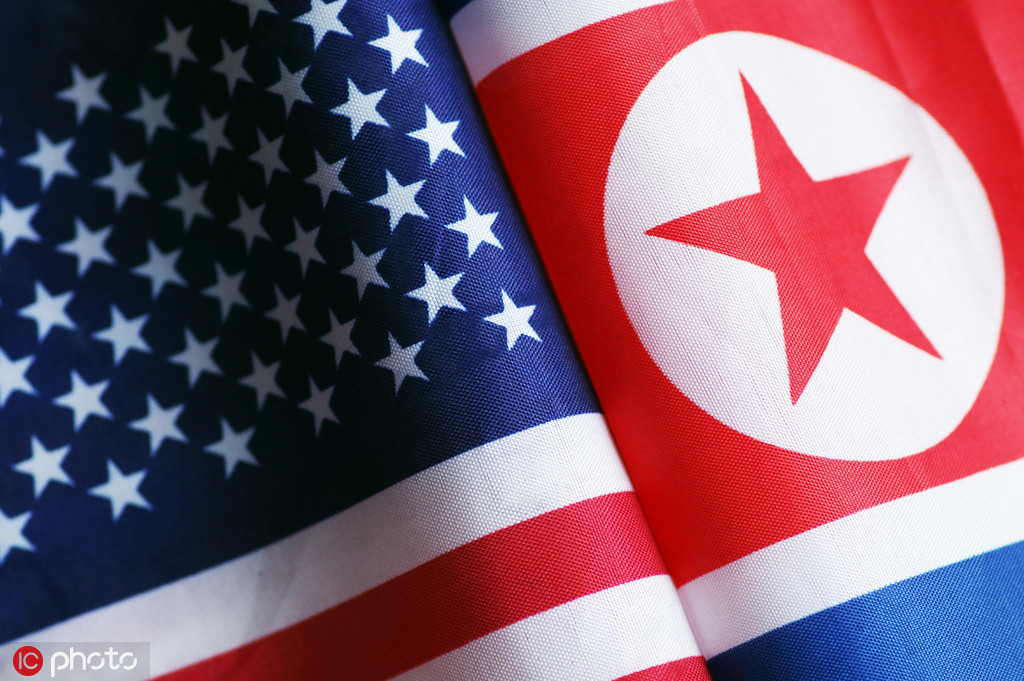China's proposal can break peninsula deadlock
By Sun Xingjie | China Daily | Updated: 2019-12-24 07:31

China and Russia have proposed that the United Nations Security Council ease some of the sanctions on the Democratic People's Republic of Korea-such as lifting the ban on exporting statues, seafood and textiles, and withdrawing restrictions on infrastructure projects-to "break the deadlock" in the talks between the US and the DPRK.
Stephen Biegun, US special envoy for the DPRK, just concluded a four-day visit to East Asia during which he visited the Republic of Korea, Japan and China, underscoring the seriousness with which the United States is taking the unfolding "December Crisis" on the Korean Peninsula.
Yet over the past couple of weeks, relations between the US and the DPRK have taken a sharp turn. Immediately after the conclusion of the Washington-Pyongyang talks in Stockholm in October, the DPRK declared them as a failure, saying the US had not come to the negotiating table with a sincere and constructive plan. After that, the DPRK has made a series of high-intensity diplomatic moves against the US.
The DPRK has criticized the US' procrastination tactics, saying it will make a political decision at the end of the year. Besides, DPRK leader Kim Jongun twice climbed up Mount Baekdusan on horseback, signaling the DPRK is trying to seek a new path. The DPRK is also putting "extreme pressure" on the US in a bid to force it to make concessions, but to no avail.
During the NATO summit in the United Kingdom earlier this month, US President Donald Trump made two points about the DPRK's repeated short-range missile tests-that the US has a strong military and is unwilling to use it, but that it would use it if necessary.
Judging by the war of words, US-DPRK relations seem to have returned to where they were two years ago. Trump and Kim Jongun have been working hard to maintain their "personal friendship" which is the most significant legacy of their meeting in Singapore in June last year. But since the personal relations between Kim Jong-un and Trump are no longer the same as they were immediately after the Singapore summit, the situation on the Korean Peninsula could further worsen.
The DPRK wants to break the deadlock in bilateral ties by putting "extreme pressure" on the US. But after the Kim-Trump summit in Singapore, the two sides' diplomatic-level consultations have not been able to achieve a breakthrough-for example, the DPRK taking denuclearization measures in exchange for lifting of some sanctions. After the second summit between Trump and Kim in Hanoi, Vietnam, in February ended in failure, the Stockholm talks, too, didn't make any progress, dealing another blow to Washington-Pyongyang relations.
The DPRK believes that its denuclearization efforts, such as the freezing of nuclear and longrange missile tests and the razing of the Punggye-ri nuclear test site, have not evoked corresponding response from the US. After the summit in Singapore, though, Trump adopted a kind of "strategic patience", different from his predecessor Barack Obama, at the cost of reducing the scale of or canceling US-ROK military exercises, in exchange for the DPRK freezing nuclear and long-range missile tests.
The Trump administration has responded with silence to more than a dozen short-ranged missile tests conducted by the DPRK, saying they do not violate the UN resolutions or the Singapore Joint Statement. The US did not respond to the DPRK's demands to lift some of the sanctions either, leading to a "stalemate" that seemingly favors the US.
After June last year, the situation on the Korean Peninsula changed as all concerned parties hoped to see a political and diplomatic settlement of the nuclear issue thanks to the new momentum of dialogue and consultation.
Peace and stability on the peninsula are in the interest of not only US-DPRK relations, but also the region and the rest of the world.
And the purpose of the draft resolution submitted to the UN by China and Russia is to create the right conditions for fruitful negotiations and consultations between the US and the DPRK and bring together all parties to the Korean Peninsula nuclear issue to find a solution, and therefore prevent the "December Crisis" from escalating.
The author is deputy dean of the School of International and Public Affairs at Jilin University. The views don't necessarily reflect those of China Daily.
























